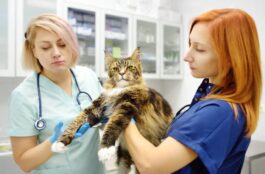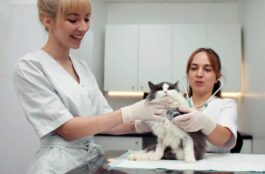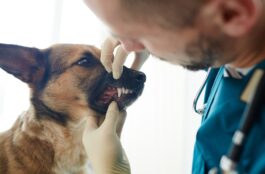
As our beloved pets grow older, their healthcare needs evolve. Just like humans, senior pets require specific vaccinations to maintain their health and safeguard against diseases. If you’re a pet parent, you might be wondering which vaccines are most beneficial for your aging furry friend. This article will guide you through the best vaccinations for senior pets to ensure they live their golden years as healthy and happy as possible.
Why Vaccinations Are Crucial for Senior Pets
Vaccinations play a critical role in maintaining your senior pet’s health. They help to bolster the immune system, protecting against infections that can be particularly harmful as pets age. Even though some assume older pets are less in need of vaccines, their immune systems can become weakened, making them more susceptible to illnesses.
Core Vaccines for Senior Dogs
Rabies Vaccine
The rabies vaccine is one of the core vaccines that is essential for all dogs, regardless of age. Rabies is a serious, often fatal disease that affects the brain and spinal cord of mammals, including humans. Keeping your senior dog up to date with the rabies vaccine is not only crucial for their health but often legally required.
Distemper Vaccine
Distemper is a highly contagious virus that impacts a dog’s respiratory, gastrointestinal, and nervous systems. The distemper vaccine is critical for senior dogs, as this virus can be deadly and is very hard to treat once contracted.
Parvovirus Vaccine
Parvovirus is another highly contagious disease that primarily affects puppies but can severely impact older dogs with weakened immune systems. The parvovirus vaccine is essential to protect your senior dog from this often fatal disease.
Core Vaccines for Senior Cats
Feline Viral Rhinotracheitis, Calicivirus, and Panleukopenia (FVRCP) Vaccine
The FVRCP vaccine is a combination vaccine that protects cats from three potentially deadly diseases: viral rhinotracheitis, calicivirus, and panleukopenia. This vaccine is crucial for maintaining your senior cat’s health, as these diseases can be highly contagious and lethal.
Feline Leukemia Vaccine
Feline leukemia is a viral disease that can lead to severe illness and death in cats. Although not every cat will need this vaccine, it is recommended for senior cats who spend time outdoors or around other cats.
Non-Core Vaccines to Consider
Canine Influenza Vaccine
Canine influenza is a highly contagious respiratory infection that can be particularly harmful to senior dogs. While not a core vaccine, consider this vaccine if your senior dog spends time in boarding facilities, dog parks, or groomers.
Lyme Disease Vaccine
Lyme disease is transmitted through tick bites and can cause serious health issues in dogs, including arthritis and kidney problems. If your senior dog is frequently in wooded or grassy areas, this vaccine can offer an additional layer of protection.
Bordetella Vaccine
Bordetella, also known as kennel cough, is a highly contagious respiratory disease. This vaccine is particularly recommended for senior dogs that may be exposed to other dogs in kennels, dog parks, or grooming facilities.
Special Considerations for Senior Pets
Customized Vaccination Plans
One size does not fit all when it comes to vaccinations for senior pets. It’s important to have a conversation with your vet to develop a customized vaccination plan tailored to your pet’s specific health needs and lifestyle.
Health Assessments
Before administering any vaccines, your vet will likely conduct a thorough health assessment to ensure your senior pet is in good condition to receive them. This may include blood tests, physical exams, and reviewing their medical history.
Monitoring and Aftercare
Observe for Reactions
After your senior pet receives their vaccines, it’s crucial to monitor them for any adverse reactions. Common side effects include mild swelling at the injection site, lethargy, and occasional vomiting. If you notice any severe reactions, contact your vet immediately.
Regular Check-ups
Maintaining regular veterinary check-ups will help keep your senior pet healthy and ensure they are up to date on all necessary vaccinations. Your vet can guide the timing and frequency of vaccines based on your pet’s health status.
Learn More About Pet Vaccinations
What Are They?
Pet vaccinations work by stimulating the immune system to recognize and fight off specific infectious agents. Vaccines are usually given through an injection and can protect your pet from diseases ranging from mild to life-threatening.
Why Senior Pets Need Them
As pets age, their immune systems can become compromised, making them more vulnerable to diseases. Vaccinations can help protect senior pets against these threats, ensuring they stay healthy and vibrant in their later years.
Stay Informed
Pet owners must stay informed about the latest recommendations and updates regarding vaccinations for their senior pets. With the rapidly evolving field of veterinary medicine, there’s always something new to know about pet healthcare; click to learn more.
Consulting a Veterinary Specialist
If you have concerns about your senior pet’s vaccinations, consider consulting a specialist in veterinary internal medicine. These professionals can provide expert advice and tailor treatments to your pet’s specific health needs.
The Importance of Geriatric Care
Aging Gracefully
As pets age, they require more specialized care to ensure a high quality of life. Many pet owners find that focusing on their geriatric dog care helps to extend their pets’ lives and improve their overall well-being.
Regular Check-Ups
Regular veterinary check-ups are essential for monitoring the health of senior pets. These visits allow veterinarians to catch potential health issues early and ensure your pet stays up to date on their vaccines and other preventive care.
Final Thoughts
Vaccinations are crucial for maintaining your senior pet’s health. By understanding which vaccines are essential and consulting with your veterinarian, you can ensure your pet enjoys a long, healthy life. Keep informed about the latest recommendations and always prioritize your pet’s needs for the best results.


